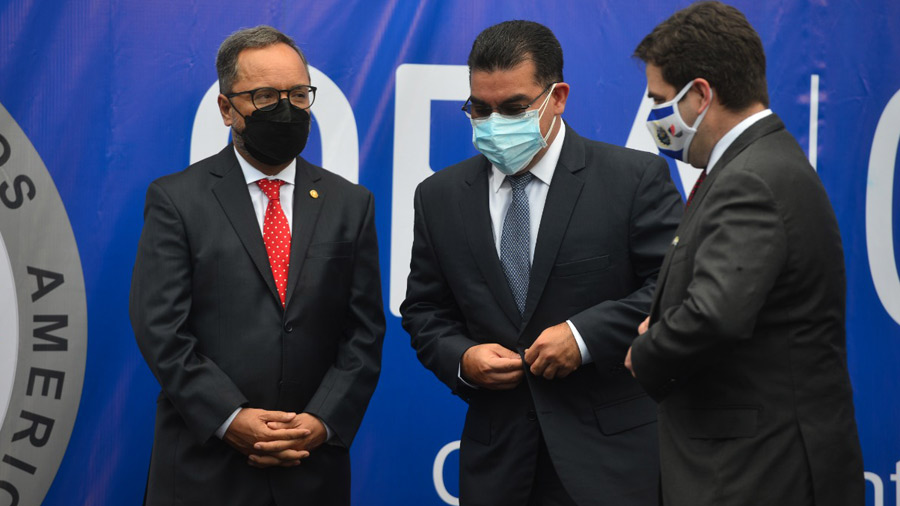
Commissioner Ronalth Ochaeta said on Wednesday that they have referred these cases, from five institutions, to the Public Prosecution Service. He did not explain what transactions or wallets they come from.
On Wednesday, April 7, the head of the International Commission Against Impunity in El Salvador, Ronalth Ochaeta, said they had sent the Public Prosecutor’s Office “12 notices of possible crimes in state portfolios.”
Ochaeta did not detail which institutions they are, the types of crimes they have discovered or what transactions they have been identified in, but said this is part of the cooperation agreements the Commission has with the Attorney General’s Office (FGR).
On March 16 this year, the Public Prosecution Service provided the Anti-Corruption Legal Advice Center (Alac-Funde) with information on three notifications received from the International Commission Against Impunity in El Salvador (CICIES), nine fewer than those received by the Commissioner yesterday. mentioned. .
You could read: Bukele fears losing control of CICIES over the visit of a US special envoy who prioritizes the role of the prosecution, deputies say.
All cases referred up to March are for alleged illegal negotiations and are under investigation. At the time, it was also not detailed which public institutions were involved in the alleged crimes.
Wilson Sandoval, of Alac-Funde, explained to El Diario de Hoy that while it is not known for sure what business, institution or official is involved, it is likely that he is referring to “the current government.”
“The problem is that from January until now we don’t know whether the CICIES have been introduced to municipalities, which is one of the objectives. But there is no indication that they are meeting outside the executive branch, as it is who they have working arrangements with, ”explained Sandoval.
Call for legal reform
Commissioner Ochaeta said yesterday that “the fight against corruption in favor of transparency and accountability of civil servants is essential for the governance and development of the country”.
For this reason, he stated that “it is necessary to create the conditions for a new legal architecture that prevents and punishes corruption, as well as the political will to adopt it.”
Plus: Bukele hires new lobbyists for $ 1.2 million, according to a site specializing in lobby monitoring
The main point of reform, he said, is to strengthen the prevention of corruption, which he believes is less costly than prosecution. The CICIES has also tabled proposals for reform, such as the possibility of being a prosecutor in anti-corruption cases.
In addition, civil society organizations have proposed reinforcing the Commission framework through legislation and greater independence. This was backed by US congressmen, who were able to release money to strengthen it.
Yesterday, however, Nayib Bukele said this initiative to strengthen the CICIES will not succeed.